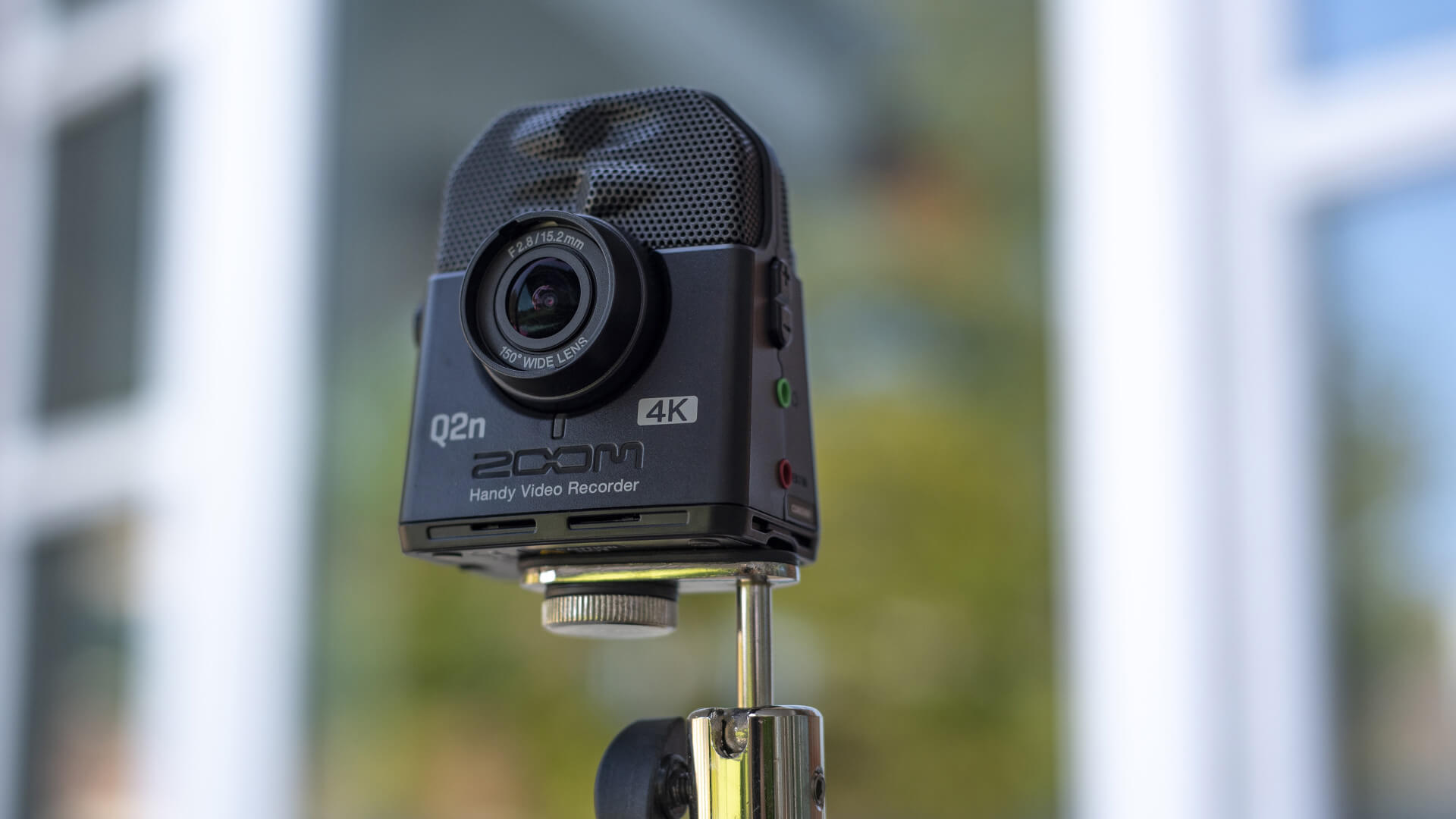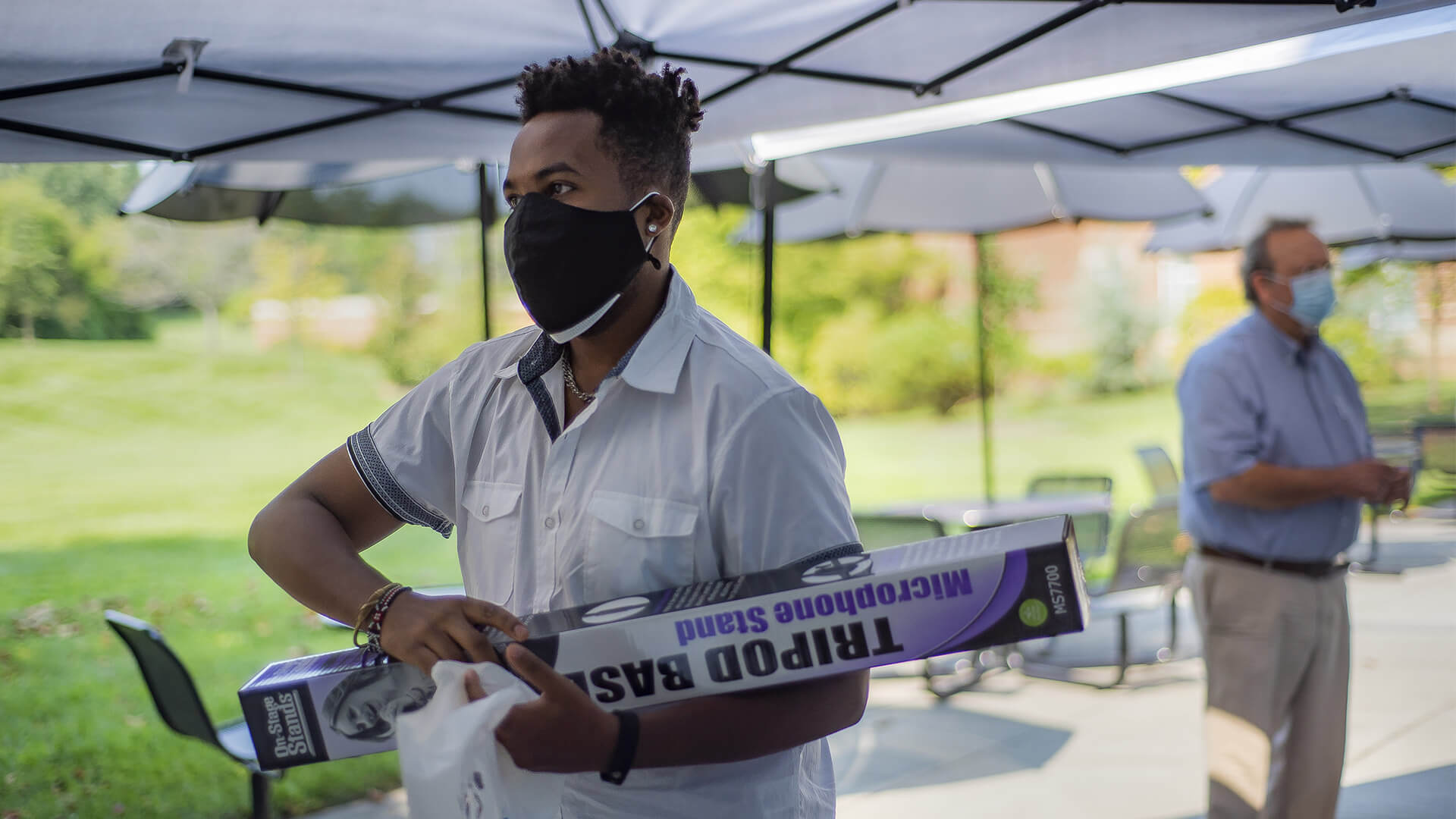- August 30, 2020
- By Kelsey Eustace
This is a story of two Zooms.
The company whose name has become synonymous with web conferencing brought many of us together during the pandemic, even if the connection can be a bit twitchy, glitchy or blurry. But for music students, timing (not to mention sound quality) is everything. An entirely different company, also named Zoom, is the technological basis for the mix of online and in-person education at the University of Maryland School of Music in Fall 2020.
 More than 400 music majors are receiving Zoom Q2N-4K recorders, tripod stands and recording accessories to capture and upload high-quality recordings of auditions, lesson assignments, performances and research, thanks to a Teaching Innovation Grant awarded by the Office of the Senior Vice President and Provost and matched by SOM. In total, music faculty received 12 Teaching Innovation Grants to invest in technology and redesign courses for the new blended learning environment of online and in-person instruction.
More than 400 music majors are receiving Zoom Q2N-4K recorders, tripod stands and recording accessories to capture and upload high-quality recordings of auditions, lesson assignments, performances and research, thanks to a Teaching Innovation Grant awarded by the Office of the Senior Vice President and Provost and matched by SOM. In total, music faculty received 12 Teaching Innovation Grants to invest in technology and redesign courses for the new blended learning environment of online and in-person instruction.
“Having my own Zoom Q2N-4K will greatly improve the clarity of sound and expression in my recordings,” said flute major Selia Myers ’22. “Since my music lessons will start virtually and may continue in an online or blended environment into the fall semester, it is ideal that I make recordings of the highest quality in order to get as close to a typical, face-to-face lesson as I can.”
When college campuses closed in March due to the COVID-19 pandemic, music schools across the country had to quickly transition to online learning and use the technology available to them. For many student musicians, this meant recording their lesson or performance on a smartphone, tablet or computer. Since these devices were not designed to capture audio or video for music assessment, the quality of the recordings made evaluating elements of music performance such as technical facility, articulation, projection or bow speed difficult. In addition, not all students had access to the same technology, putting them on unequal playing fields.
While it doesn’t replicate in-person instruction, the Zoom Q2n-4K recorder solves many of the problems encountered in online music instruction last spring. The devices are designed with musicians in mind and can record clear audio with 4K video while being small and easy to use. In addition to recording, it can be used as a webcam and for livestreaming to Facebook, YouTube and more—a functionality that quickly became in demand when in-person performances were canceled because of the pandemic.
 The recorders will belong to the students to use for classwork, capture creative endeavors and even keep once they graduate. Myers shared that she already has plans to use hers to record audition submissions to summer music festivals.
The recorders will belong to the students to use for classwork, capture creative endeavors and even keep once they graduate. Myers shared that she already has plans to use hers to record audition submissions to summer music festivals.
“Providing our music majors with the same technology elevates the playing field for everyone,” said SOM Director Gregory Miller. “In embracing technology, our students will learn new skills that will further prepare them for careers as 21st century musicians in a post-pandemic society.”
As part of this commitment to technology, SOM is also providing music majors with access to the music notation program Noteflight and mixing software Soundtrap. Combined with the Zoom Q2N-4K devices, this software will provide the students with editor tools so they can learn to create their own professional recordings.
SOM has also purchased JamKazam kits that will enable musicians in different locations to potentially play together in close to real time. The goal is for this technology to be deployed for online synchronous rehearsing and performance opportunities.
In addition, SOM intends to use technology for virtual community engagement initiatives. Students could participate in virtual visits to K-12 schools across the state or stream their degree recitals to an international audience.
"Through technology and innovation, we will overcome many of the challenges presented by the pandemic’s impact on in-person music instruction and performance in order to provide the highest quality education and exciting opportunities for SOM students this fall," said Miller.
Topics
Arts & Culture